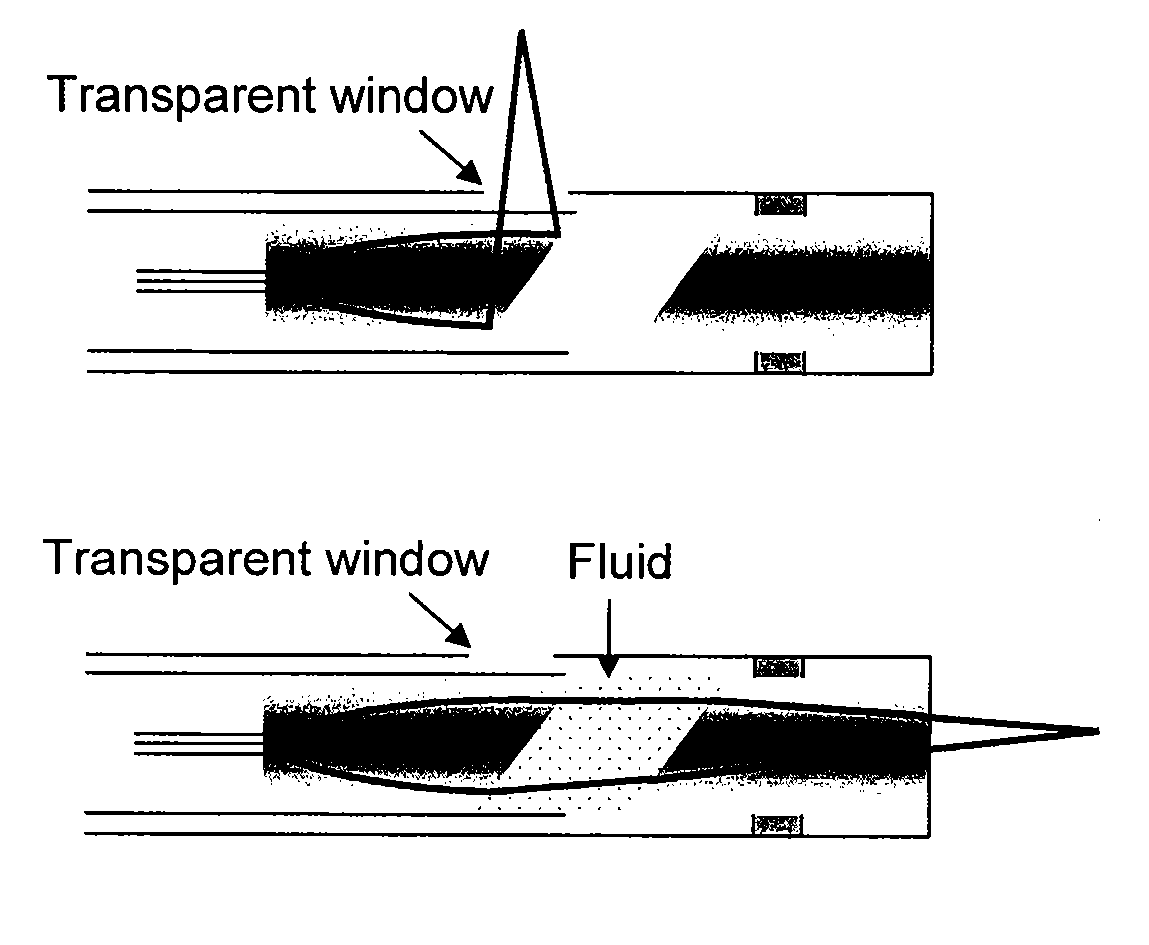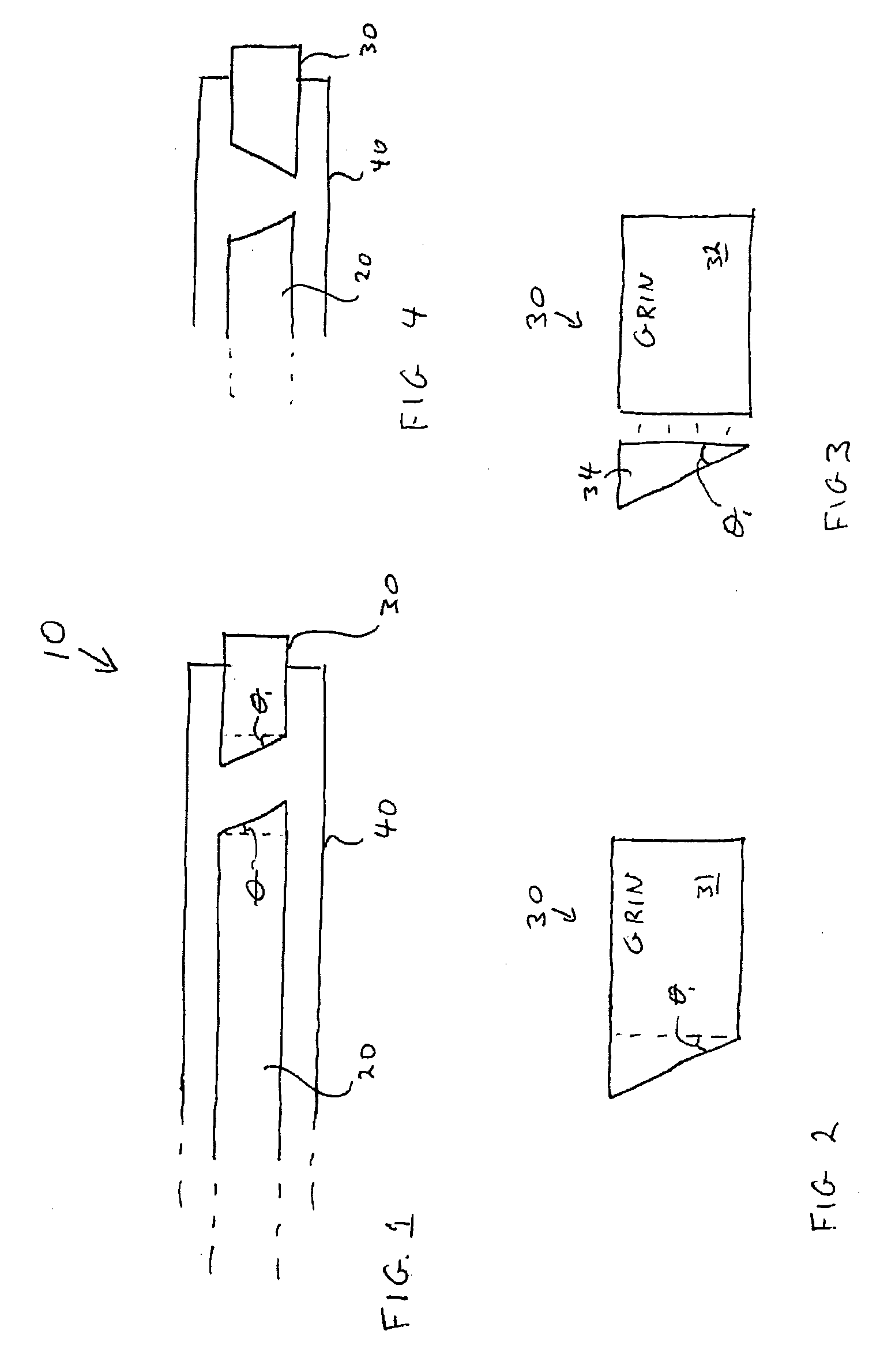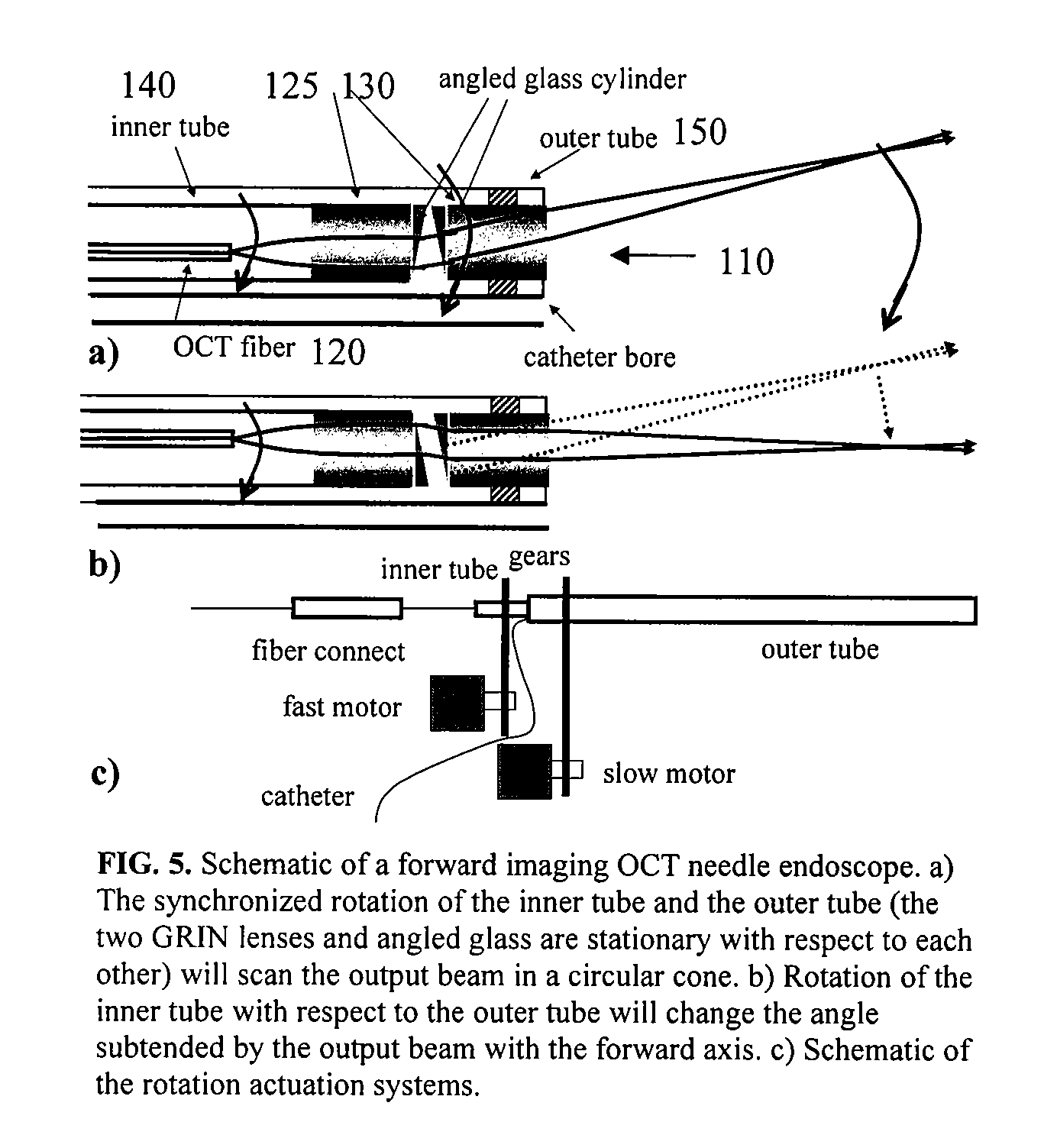Paired angled rotation scanning probes and methods of use
- Summary
- Abstract
- Description
- Claims
- Application Information
AI Technical Summary
Benefits of technology
Problems solved by technology
Method used
Image
Examples
Embodiment Construction
[0024] The present invention provides novel probes, and systems and methods for optically scanning a conical volume in front of a probe, for use with an imaging modality, such as Optical Coherence Tomography (OCT). Other useful imaging modalities for which probes of the present invention are useful include Optical Doppler Tomography (ODT), and Speckle Decorrelation Tomography (SDT).
[0025] A probe 10 according to one embodiment is shown in FIG. 1. As shown, probe 10 includes an optical fiber 20 and a lens element 30 proximal the end of fiber 20. A tube 40 encloses fiber 20. Tube 40 is also coupled to lens element 30 to facilitate rotation of lens element 30 relative to fiber 20. Fiber 20 may itself be rotated separately from tube 40, in one aspect, as will be described in more detail below with reference to FIG. 5.
[0026] In one aspect, fiber 20 includes a single mode fiber (SMF; although multimode fibers can be used if desired) having an end that is angled cut at an angle of θ as s...
PUM
 Login to View More
Login to View More Abstract
Description
Claims
Application Information
 Login to View More
Login to View More - R&D
- Intellectual Property
- Life Sciences
- Materials
- Tech Scout
- Unparalleled Data Quality
- Higher Quality Content
- 60% Fewer Hallucinations
Browse by: Latest US Patents, China's latest patents, Technical Efficacy Thesaurus, Application Domain, Technology Topic, Popular Technical Reports.
© 2025 PatSnap. All rights reserved.Legal|Privacy policy|Modern Slavery Act Transparency Statement|Sitemap|About US| Contact US: help@patsnap.com



